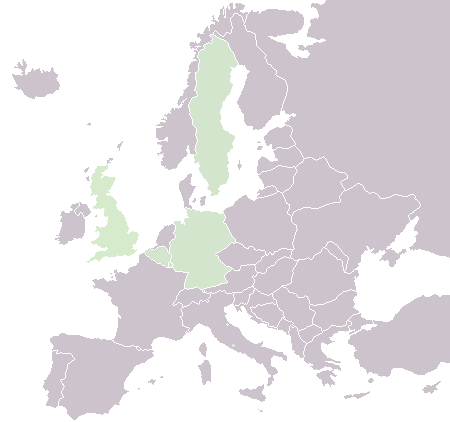Early language and intercultural acquisition studies
ELIAS aims to advance Europe-wide establishment of bilingual preschools and collaboration with non-academic educational institutions. Researchers will monitor young children's learning progress in second language acquisition, intercultural communication, bilingual science skills and environmental awareness ("green immersion") in one bilingual zoo preschool and six bilingual preschools. Located on the premises of the Magdeburg Zoo, the unique zoo preschool thrives on its proximity to animals and zoo personnel and provides an ideal learning environment for bilingual nature and science education. Such collaboration is unprecedented in Europe and the world.
Bilingual or immersion education from native speakers of a second language (L2) is the most effective CLIL teaching method for L2 acquisition and simultaneously imparts other key skills such as content learning and intercultural awareness. Thus, this innovative pedagogical concept is ideal for Europe’s knowledge-based society, giving young children the earliest head start in their lifelong learning process and preparing them to better exploit their foreign language skills in later schooling.
The ELIAS team comes from Belgium, England, Germany and Sweden and closely collaborates with the Saxony-Anhalt Ministry of Health and Education and Ministry of Agriculture and the Environment in Germany. Applying such approaches as ethnographic participant observation and standardised qualitative and quantitative assessments, ELIAS will conduct thorough research studies of the development of the children's first and second language acquisition (L2 English) and intercultural competence. The findings will shed light on the effectiveness of the bilingual preschool concept and document the children's learning progress. The zoo team will produce bilingual teaching materials on zoo animals and nature topics. Additionally, the research group will conduct teacher training workshops for the preschools' staffs, compile an implementation guide for bilingual preschools and deliver recommendations for the strategic implementation of immersion in European school systems to guarantee programme continuity.
Target groups for the results of the ELIAS project will be specialists in the European education sector, preschools, schools, research institutions and non-academic cultural institutions (e.g. zoological and botanical gardens, aquariums, museums) and the general public. Press releases will announce the kick-off and the end of the project. The project team will present its findings at international academic conferences and a final symposium. Moreover, the symposium proceedings and the final report will be published as books and the bilingual science materials on CD ROM. All project results will be available on this website.

|
News 02.-1.2008EU co-funds ELIAS The project has been accepted by the EU! Please check the f ...more Preliminary project schedule (Dec 2008) Here you find the preliminary schedule for our project (Dec ...more Symposium in Magdeburg Jan 24, 2009 Please see the link to read more about the first ELIAS sympo ...more ELIAS Research Team Conference Our annual team meeting is taking place in Magdeburg, July 1 ...more ELIAS Intermediate Report The ELIAS Intermediate Report is now online (see Materials)! ...more |